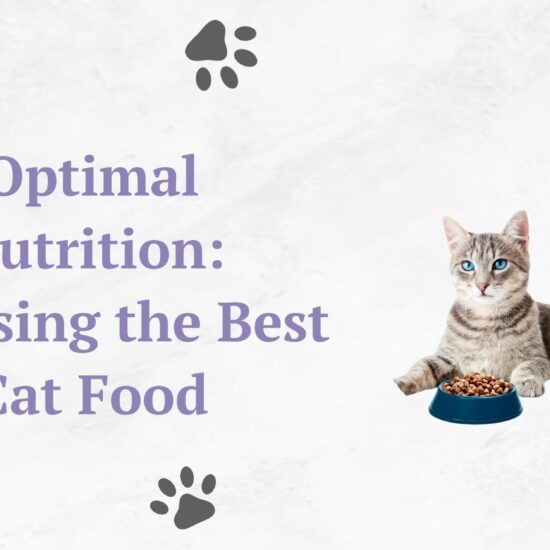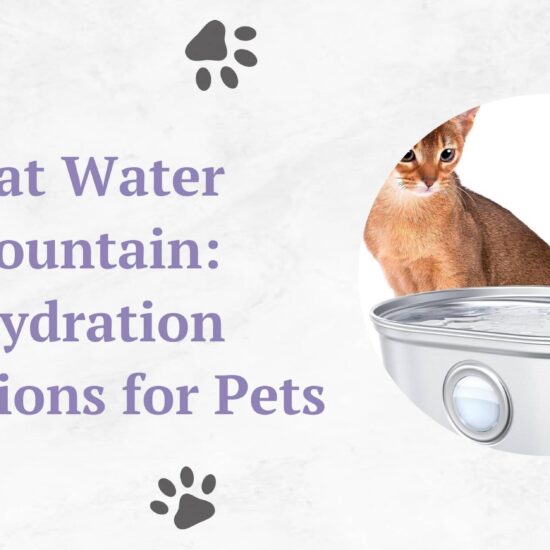The decision to add a new pet to your life is thrilling, but it also comes with a plethora of options. One of the most important decisions you’ll have to make is whether to adopt a pet from a shelter or rescue group or become a foster parent for a homeless animal. Pet adoption and foster care each have their own set of benefits and drawbacks, and making the appropriate decision takes careful consideration of your lifestyle, tastes, and the needs of the animals involved.
Table of Contents
Introduction
We will investigate the worlds of pet adoption and foster care in this comprehensive guide, providing light on the distinctions, benefits, and drawbacks of each option. By the end, you’ll be better prepared to make an informed selection that will benefit both you and your possible furry friend.
Adoption of Pets
Before going deeper into the debate of pet adoption vs foster care, let’s understand the details of pet adoption along with the advantages related to it.
- What Exactly is Pet Adoption?

Pet adoption is a selfless act that involves taking in a homeless animal and giving it a permanent and loving family environment. These animals can be found in a variety of settings, including animal shelters, rescue groups, and private rehoming operations. When you adopt a pet, you are committing to being their everlasting home, providing them with not only shelter but also love, care, and stability.
- Advantages of Pet Adoption

The Chance to Save a Life: One of the most compelling reasons to consider pet adoption is the chance to save a life. Millions of animals end up in shelters each year, and regrettably, many of them face euthanasia due to overcrowding and poor resources. Adoption provides a lifeline to a creature in need, giving them a second chance at life and contributing to the ongoing fight against senseless death.

A Wide Diversity of Animals: Shelters and rescue organizations house a wide diversity of animals. There are not just puppies and kittens here, but also geriatric creatures who are sometimes forgotten. Furthermore, you’ll come across a range of types, including purebred animals as well as unusual mixed varieties. Because of this variety, you have the option of selecting a pet that matches your interests and lifestyle, whether you are seeking a certain breed or simply a loving companion.

Cost-Efficiency: Adopting a pet is often less expensive than acquiring one from a breeder or pet store. The majority of adopted animals are spayed or neutered, vaccinated, and, in certain cases, microchipped. You can save a significant amount of money by having the adoption fee cover these initial veterinary expenses. Furthermore, shelter fees are often significantly lower than those charged by breeders or pet stores.
Instant Companionship: One of the benefits of pet adoption is the immediate companionship it provides. Adopting a pet means taking home a furry friend who is eager to become a member of your family. In contrast to the waiting period associated with raising a puppy or kitten, you may immediately bond with your new pet and begin making memories with them.

A Sense of Accomplishment: Adopting a pet may be an extremely rewarding experience. Knowing you’ve given a loving home to an animal who could otherwise have faced an uncertain future gives you a great deal of satisfaction. The sense of accomplishment that comes from saving a life and giving someone a second chance motivates many adopters.
- Pet Adoption Difficulties

Unknown Background: While pet adoption has various benefits, it also has its share of drawbacks. Many animals in shelters have unknown or incomplete histories. This lack of knowledge about their past can make it difficult to predict their behavior or health difficulties. However, it’s important to note that most pets can acclimate to their new homes and families with time, patience, and constant care.
Behavioral Issues: Some adopted pets may have behavioral issues as a result of past trauma or neglect. These difficulties can include fear, worry, or anger. To help your pet overcome their prior experiences and become a well-adjusted member of your family, addressing these difficulties may involve time, patience, and professional training.
While many adopted pets are healthy, some may have pre-existing medical issues that necessitate continuing medical care. It is critical to budget for future veterinarian costs, such as regular check-ups, vaccines, and treatments for any underlying health conditions. It is critical to budget for these expenses in order to protect your pet’s well-being.

Consider the following ideas to guarantee a successful pet adoption experience:
Investigate Shelters and Rescue Groups: Take the time to investigate various shelters and rescue groups in your region. Look for credible organizations that share your ideals and commitment to animal care.
Match Your Lifestyle: When selecting a pet, consider your lifestyle. Consider the size, energy level, and temperament of the pet to guarantee they will be a suitable fit for your living arrangement and activity level.
Be Patient: Adoption should not be rushed. Spend some time getting to know the pet you intend to adopt. Spend quality time with them to ensure that you and your prospective furry family member are a good fit.
You can embark on a successful and rewarding pet adoption adventure by carefully examining these aspects and providing a loving home to a deserving animal in need.
Foster Parenting
Let us find details about foster care to determine the better choice between pet adoption vs foster care.
- What is Pet Foster Care?

Foster care for pets is a kind and temporary arrangement in which individuals or families open their homes to animals in need of a safe and caring environment. Puppies, kittens, adult dogs, cats, and even more exotic pets are examples of these creatures. Foster caregivers are responsible for the animal’s care until a permanent home can be found. This technique aids in the reduction of overcrowding in shelters and rescue groups by providing customized care and attention to animals who may be stressed or unadoptable in a shelter setting.
- Advantages of Foster Care

Lifesaving: One of the most significant advantages of foster care is its ability to save lives. Foster care shelters provide an important lifeline for animals who are too young, unwell, or behaviorally challenged to survive in a shelter. Foster caregivers give these animals a second opportunity at finding a loving permanent home by providing temporary care and rehabilitation.
Reduced Shelter Stress: Life in a shelter may be extremely stressful for animals. Crowded, noisy, and unfamiliar surroundings can be detrimental to their mental and physical health. On the other hand, foster care shelters provide a calmer, more comfortable, and less stressful environment. This better habitat can have a significant impact on the animals’ behavior, health, and overall well-being, perhaps enhancing their prospects of adoption.
Flexible Commitment: Because foster care requires a flexible commitment, it is an excellent option for people or families who are not prepared for the long-term burden of pet ownership. Foster caregivers can choose to foster for a few weeks or for an extended amount of time, depending on their availability and preferences. This adaptability enables people to make a positive difference in the lives of animals without the long-term commitment of pet ownership.
Trial Period: Fostering allows you to experience the joys and hardships of caring for an animal without the long-term commitment of adoption. It’s similar to a “test run” for pet ownership. Foster caregivers can examine their readiness for the obligations of pet ownership, get vital experience in pet care, and gauge their emotional readiness.
Personal Satisfaction: Foster caregivers get a lot of satisfaction from knowing they played a big part in helping an animal find a forever home. Making a major and positive difference in an animal’s life and watching them grow, recover, and thrive is a very satisfying experience. Knowing you played a role in their successful adoption can be extremely rewarding.
- Foster Care’s Difficulties

One of the most difficult aspects of foster care is the emotional relationship that typically develops between the foster caregiver and the foster pet. Foster caregivers become emotionally attached to the animals they care for during the period of their stay, making it difficult when the time comes for the pet to be adopted. However, it’s important to realize that this emotional relationship is a result of the animal’s affection and care while in foster care shelter.
Time and Resources: Fostering necessitates a large investment of both time and money. Foster caregivers must be prepared to offer proper care, which includes feeding, grooming, exercise, and frequent veterinary visits. Fostering may incur fees for food, supplies, and medical care, but many rescue organizations will cover these expenses.
Behavioral Issues: Because of their previous experiences, foster animals may have behavioral issues. These difficulties can include fear, anger, anxiety, or other behavioral issues caused by neglect or trauma. Addressing these difficulties in foster care shelters can be difficult and requires patience, constant training, and a willingness to work under the supervision of the rescue organization.
Suggestions for Effective Foster Care

Foster caregivers should maintain open and honest communication with the rescue agency or shelter. As a foster caregiver, clearly convey your preferences, restrictions, and any unique needs or concerns.
Emotional Preparation: Be prepared to create a strong emotional relationship with your foster pet. Understand that saying goodbye when the pet is ready to be adopted can be difficult, but it is ultimately a sign of success in finding them a loving permanent home.
Provide a Loving Environment: Give the foster pet a safe, loving, and stable environment in which to adjust and grow. Routines, socializing, and positive reinforcement training can all help to improve their well-being and raise their prospects of adoption.
Making a Decision Between Pet Adoption vs Foster Care

A significant decision like choosing between pet adoption and foster care should take into account a variety of factors, such as your lifestyle, personal preferences, current pet situation, financial resources, and personal goals. We will go deeper into these aspects in this part to help you make the best decision for you and your possible furry friend.
Note: There might be affiliate links mentioned here. We may receive a commission if you purchase a product through an affiliate link. There is no additional charge for you. Please do your own research before making any online purchases.
- Personal Preferences

Your lifestyle will play an important role in determining the best fit for you between pet adoption vs foster care. Here’s how it’s done:
Permanent Companionship vs. Temporary Commitment:
Pet Adoption: If you want a lifelong companion and are willing to make the long-term commitment that comes with pet ownership, pet adoption is the best alternative. When you adopt a pet, you make a long-term commitment to provide them with love, care, and support for the rest of their lives.
Fostering: If your lifestyle is more suited to short-term commitments, fostering may be a better fit. Fostering allows you to temporarily care for animals, providing them with a safe and loving environment until they find permanent homes. This option is ideal for people with flexible schedules who may not be prepared to take on the lifelong commitment of pet ownership.
- Individual Preferences

When making this essential selection, keep your own preferences and comfort levels in mind.
- Adoption
Unknown History: If you decide to adopt a pet, you should be prepared to adopt a pet with an unknown history. Many shelter animals have a partial or unknown history, making it difficult to predict their behavior, health conditions, or previous experiences. It takes a certain amount of adaptability and willingness to face the unknown.
- Fostering
Emotional Difficulties: Fostering often requires building strong emotional attachments with the animals you care for. While this can be extremely gratifying, it can also be emotionally difficult when it comes time to say goodbye as the foster pet finds its forever home and leaves the foster care shelter. Fostering necessitates emotional fortitude and the ability to deal with the bittersweet nature of the endeavor.
- Current Animal Situation

If you currently have pets, evaluate their compatibility with a new addition, whether it’s a permanent adoption or a temporary foster arrangement.
- Adoption
Compatibility: When adopting a pet, make sure that it will get along with your other pets, if you have any. It is critical to take into account their personalities, energy levels, and any potential conflicts. To maintain family unity, proper introductions and gradual changes may be required.
- Fostering
Single Pet Households: Some foster animals flourish in single pet households. If you already have pets, especially if they are territorial or do not get along with other animals, you should consider whether they can coexist happily with a temporary foster pet. Separate living arrangements or close supervision may be required in some circumstances.
- Resources and Assistance

Before making a decision, consider your available resources, such as time, space, and money.
- Adoption
Financial Preparedness: Owning a pet entails financial obligations such as food, frequent veterinary care, grooming, and unforeseen medical bills. Before getting a pet, be sure you’re financially prepared for the continuing costs.
Support Networks: Connect with local veterinarians, trainers, and pet care specialists who can offer advice and support throughout your pet’s life. It is critical to have a support network in place to ensure your pet’s well-being.
- Fostering
Financial Considerations: While fostering frequently requires less financial commitment than permanent pet ownership, it is still crucial to have the resources to meet the needs of the foster pet. This covers food, supplies, and any medical bills that may arise.
Organizational Support: Many rescue groups and shelters assist foster caregivers by covering veterinary bills and supplying supplies. When considering fostering, make sure you have access to these services and support networks.
- Personal Objectives

When deciding between pet adoption vs foster care, consider your own goals and motivations:
- Adoption
Saving Lives: If you want to save the life of a homeless animal and give it a permanent, loving home, pet adoption is the most straightforward way to do it. Your desire to give a deserving pet a lifelong home is what drives this long-term commitment.
- Fostering
Short-Term Commitment: Fostering is a fantastic alternative if you want to make a positive difference in the lives of animals but are seeking a shorter-term commitment. It allows you to help save lives without the long-term commitment of pet ownership.
FAQs
What is the primary distinction between pet adoption and pet foster care?
Pet Adoption: Adopting a homeless animal means permanently welcoming them into your house and giving them a lifelong family environment.
Foster care: Foster care is a temporary situation in which people or families provide a secure and caring home for animals in need until a permanent home can be found.
What is the difference between pet adoption and foster care?
Factors such as your lifestyle, personal preferences, present pet situation, available resources, and personal ambitions should all play a role in your decision. Consider which option best fits these criteria.
Is pet adoption a better alternative for individuals looking for a permanent pet companion?
Yes, pet adoption is great for people or families looking for a lifelong companion who are willing to make the long-term commitment that comes with pet ownership.
Can I foster animals if I already have pets?
Yes, you can foster animals if you already have pets, but you must check compatibility and take into account your existing pets’ characteristics and comfort with newcomers.
How do I deal with the emotional issues of fostering, especially when the pet is ready to be adopted?
Emotional difficulties are a regular element of foster care. Being emotionally prepared and realizing that saying goodbye is a sign of accomplishment in finding a permanent home for a pet can be beneficial.
Is there a financial distinction between pet adoption and fostering?
Pet adoption typically has higher initial fees, whereas fostering frequently has smaller financial responsibilities. Both approaches, however, necessitate financial preparation for pet-related expenses.
Is it necessary for me to have support networks for both pet adoption and fostering?
Yes, both choices require support networks. You must have access to local vets and pet care professionals in order to adopt. Rescue organizations frequently provide assistance with fostering, including covering veterinarian fees and supplies.
Can I foster for a limited time if I am not ready for a long-term commitment?
Yes, fostering is a flexible commitment that allows you to choose between short-term and long-term engagement depending on your availability and preferences.
How can I ensure that my pet adoption experience is a success?
Check foster care shelters and rescue organizations, find a pet that fits your lifestyle, and be patient during the adoption process. Spend time with the pet to ensure a good match.
What is the shared purpose of pet adoption and fostering?
Pet adoption and fostering both aim to save lives and provide loving homes for animals in need. The key distinction is the length of the commitment, with adoption being permanent and fostering being temporary.
Conclusion
The decision between pet adoption and foster care is highly personal, and there is no one-size-fits-all solution. Both options present distinct advantages and challenges. Pet adoption allows you to give a homeless animal a permanent, loving home, whereas foster care allows you to make a difference in an animal’s life without making a long-term commitment.
Finally, the decision should correspond to your lifestyle, tastes, and motives. Whether you choose to adopt a pet or become a foster caregiver, keep in mind that you are improving the lives of animals in need. Whatever path you take, your love and care will help a furry buddy have a happier future, and that is a choice worth celebrating.












